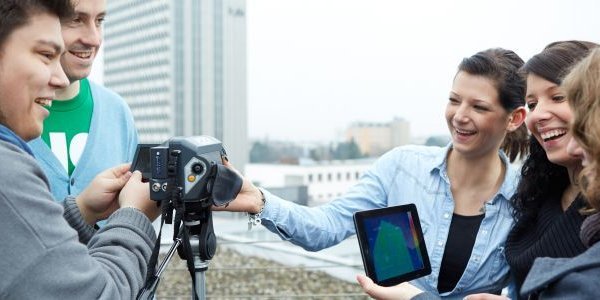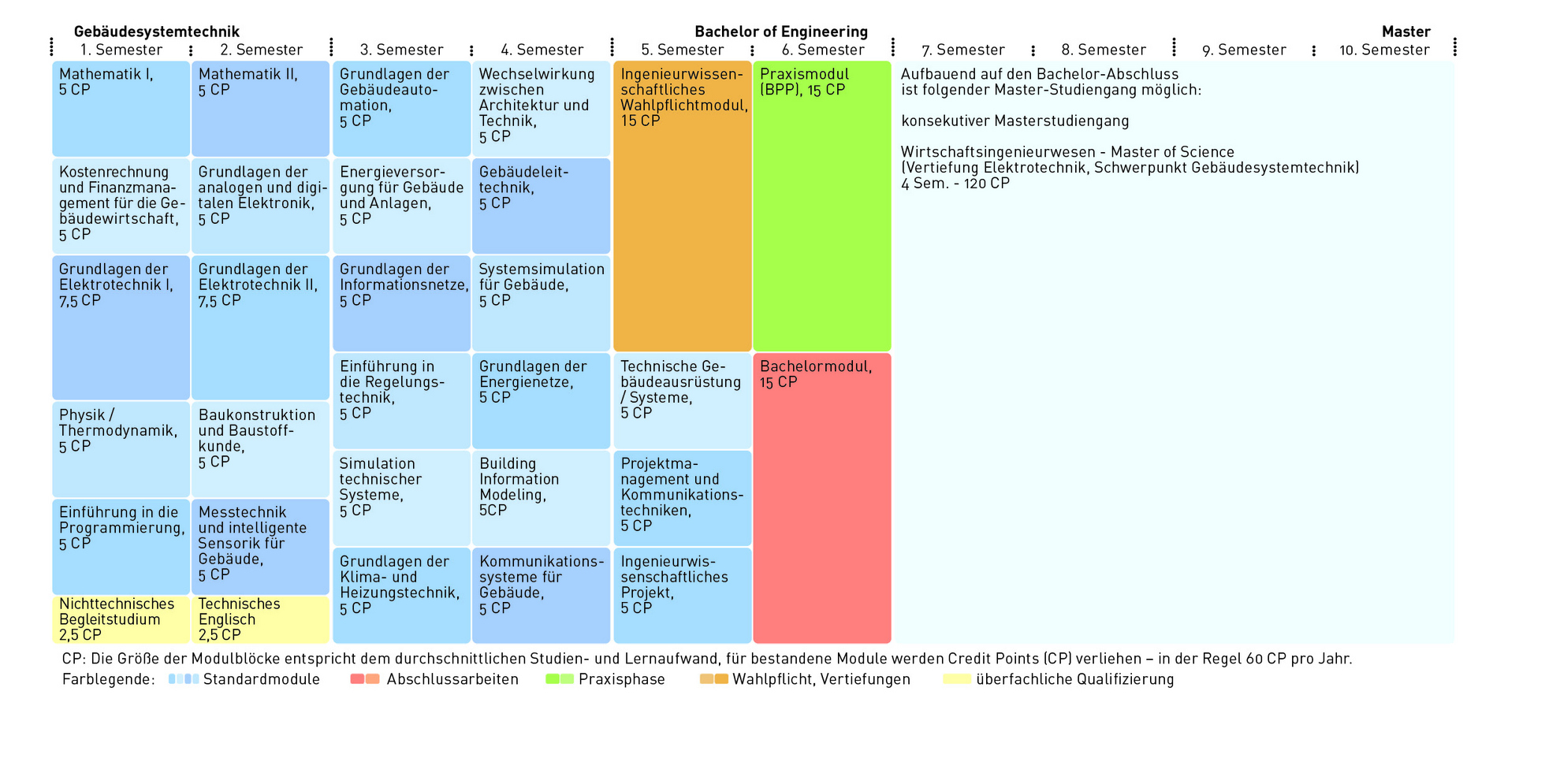
Smart Building Infrastructure Systems (Bachelor of Engineering)
| Semester | 6 Semester |
| Darmstadt | |
| Winter semester | |
| GER | |
| Without admission restriction. | |
| yes |
Content
A modern building infrastructure puts complex demands on comfort, security and energy efficiency. This begins with the planning and dimensioning of buildings and their building systems technology, continues through the construction and usage phase, and ends with the dismantling and recycling of components and materials. In order to meet these interdisciplinary challenges, know-how is needed in the electrical engineering sub-areas of automation, energy and communication technology in conjunction with civil engineering and architecture. In the bachelor's degree course in building systems engineering, future engineers learn in six semesters the essential basics for holistically planning, optimising and ecologically evaluating buildings in terms of energy and information flows. Important course contents are:
- Intelligent technical building equipment
- Building automation / building communication
- building information modeling
- Interaction between architecture and technology
- Energy-efficient air conditioning and heating technology
- Project management and practical experience
You can find more detailed information about the degree programme on the website of the Faculty of Electrical Engineering and Information Technology (German).
Perspectives
Good career prospects exist, among other things, in:
- Planning and consulting companies
- Energy industry and energy consulting
- Technical building equipment / building management
- Heating and air-conditioning technology
- Building and supply technology
Building on the Bachelor's degree, Master's programmes in engineering sciences are possible.
Structure
The programme is divided into lectures, project work and laboratory phases. The bachelor's degree qualifies students for a profession, but also allows them to be admitted to master's degree programs, such as industrial engineering with a specialization in electrical engineering and a focus on building systems engineering at Darmstadt University of Applied Sciences. A detailed presentation of the contents can be found in the modules handbook (German).
Dual study programme
Smart Building Infrastructure Systems (B.Eng.) can also be pursued as a dual study programme. Further information can be found on the website of the faculty.
Access
The study programme Building Systems Engineering (B.Eng.) is not admission restricted. Proof of eight weeks of practical training must be submitted by the end of the third semester. Among other things, these school-leaving certificates are considered admission requirements:
- General matriculation standard (allgemeine Hochschulreife)
- Subject-related entrance qualification (fachgebundene Hochschulreife)
- Advanced entrance qualification for universities of applied sciences (Fachhochschulreife).
A detailed description of the admission requirements can be found in the Special Provisions of the Examination Regulations (German).
The application deadline has been extended. Please inform yourself under application deadlines.
